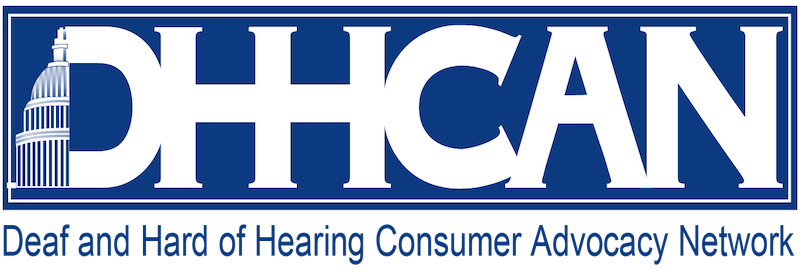In our joint letter, the members of DHHCAN convey our disappointment with the media’s inappropriate focus on an accommodation request made by a candidate for public office.
Instead of perpetuating ableist attitudes, we ask the media to join us in ensuring systemic barriers are dismantled, paving the way for valuable contributions from candidates with disabilities and leading to a more diverse, equitable, inclusive, and accessible country.
****************
On Tuesday October 11, Lieutenant Governor of Pennsylvania and Democratic U.S. Senate candidate, John Fetterman, gave an interview to Dasha Burns of NBC, who put undue attention on Fetterman’s use of captioning technology for the interview.
Rather than focus on Fetterman’s responses to the interview, Burns’ comments about the use of captioning technology was ableism at its worst. Burns and the network agreed to use captioning for the interview but how they spoke about it was patronizing. The brief NBC segment was Fetterman’s first in-person media interview since having a stroke. When he should have been asked about his policies, he was instead forced to answer questions about his ability to lead based on assumptions about his health and disability, despite having shown he can address the political issues of the day.
Millions of people use captioning daily for different reasons. Multiple studies have shown that at least 54% of Americans watch content with captioning or subtitles most of the time. The use of captioning does not reflect on a person’s ability to communicate or to make decisions. Fetterman had a stroke in May that caused him to experience auditory processing disorder and aphasia, an impaired ability to understand or express speech. He uses closed captioning technology to support his work.
Even though Burns and NBC accommodated Fetterman, their criticism of the process undermines people with disabilities, particularly in their quest to work and seek political office. There are not enough politicians who represent the disability community, and this is often the effect of media attention on their disability rather than the skills and ideas that they bring to political representation. According to the National Council on Independent Living, there are two U.S. senators and nine representatives with disabilities currently in federal office representing both political parties. In Pennsylvania, where Fetterman is campaigning, the state legislature has a state representative with autism (Jessica Benham of the 36th District) and a state senator who uses a wheelchair (Christine Tartaglione of the 2nd District).
More specifically, deaf, hard of hearing, DeafBlind, and DeafDisabled people use captioning every day. The United States has had numerous elected officials who are deaf (see: Kevin Nolan, Northampton, MA; Amanda Folendorf, Angels Camp, CA; Fred H. Begole, Marquette, Michigan; Neil McDevitt, North Wales, Pennsylvania as examples).
The Deaf and Hard of Hearing Consumer Advisory Network (DHHCAN) serves as the national coalition of over 20+ organizations representing the interests of deaf, hard of hearing, DeafBlind, and DeafDisabled people in public policy and legislative issues relating to rights, quality of life, equal access, and self-representation. DHHCAN also provides a forum for proactive discussion on issues of importance and movement toward universal, barrier-free access with emphasis on quality, certification, and standards.
The DHHCAN Coalition is disappointed with the derogatory attacks on Pennsylvania Lt. Governor Fetterman for his use of captioning. We stand with the American Association of People with Disabilities and the National Disability Rights Network in supporting their statements. We ask the press to accommodate all political candidates that require accommodations, including Fetterman, without bias and discrimination. The media must do better to provide unbiased coverage on deaf and disabled political candidates across the country.
